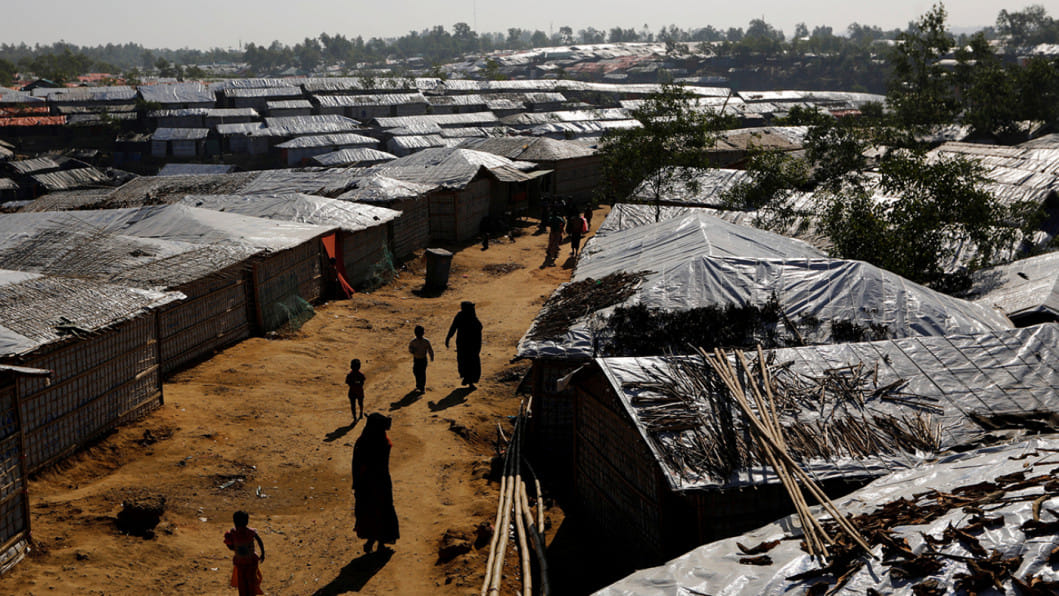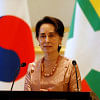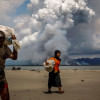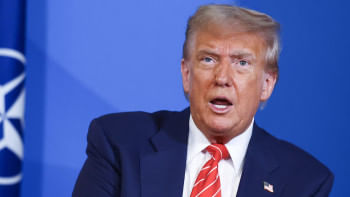Rohingya repatriation: Dhaka hopeful for new beginning with Myanmar

Foreign Minister AH Mahmood Ali today hoped there will be a new beginning with Myanmar through Rohingya repatriation.
"With the repatriation of the Rohingyas under the arrangement signed on November 23, 2017, we hope to have a new beginning with Myanmar," he said.
The issue of Rohingya influx with Myanmar remained as an irritant in bilateral relations between the two countries, he added.
Given the shared political, cultural, social, economic history over centuries, the foreign minister said India remains Bangladesh's most important partner.
The foreign minister was addressing a seminar titled 'Changing Global Dynamics: Bangladesh Foreign Policy' highlighting on "Evolving Bangladesh Foreign Policy in the Context of Contemporary Geopolitics" at Bangladesh Institute of International and Strategic Studies (BIISS).
State Minister for Foreign Affairs M Shahriar Alam and Chairman of BIISS Ambassador Munshi Faiz also spoke at the programme.
As a natural connect between South and South-East Asia and beyond, he said Bangladesh will continue to pursue regional cooperation as an engine for sustainable growth and economic integration through Saarc, Bimstec, BBIN, SASEC, and BCIM.
He said to secure economic benefits Bangladesh will continue to forge effective partnerships with other countries.
"We've already developed such partnerships with India, China, Japan, the UK and the USA in recent years across mega infrastructure, power and energy sector projects, etc," he said.
On realisation of sustainable development goals, Minister Ali said Bangladesh will continue to stretch its partnership in multiple fronts for realisation of sustainable development goals.
He said human rights and fundamental freedoms are the keys to our existence. "After ending the culture of impunity through the trial of war criminals who committed genocide and crimes against humanity during our War of Liberation in 1971, we're now focusing on international recognition of the 1971 genocide."
He said Bangladesh will continue to maintain a lead role in UN peacekeeping operations by contributing troops, police, including female peacekeepers. "We would also gradually bring more focus on peacebuilding activities," he added.
He said Bangladesh would employ mix tools and options at bilateral, regional and multilateral level to accomplish its objectives. "As we've done recently with the issue of Rohingyas, we'll continue to utilise our image in the multilateral forum to further our national interest," Ali said.
Over the past decade, he said, Bangladesh foreign policy has taken multiple retours keeping the basic principles of engagement intact.
"Beyond our deeper engagement with Western Europe, our outreach to Eastern Europe, Africa, Latin America has been extended to explore new markets for our products and labour and thus to best ensure Bangladesh's economic security," he mentioned.
In the coming days, Minister Ali said, they will continue to work together to fulfill foreign policy vision and strategy under the normative guidelines of Vision 2021 and Vision 2041.
"Drawing on our rich history and accomplishments, we'll strive to demonstrate to the world why Bangladesh should matter. We all need to think innovative ways to accomplish that," the minister said.
In the coming days, he said, Bangladesh will continue to pursue its peace-centric and sustainable development focused approach in the international forum. At the domestic front, the development agenda will continue to take priority which will be furthered by regional integration and connectivity, said the Foreign Minister.
He mentioned that the relationship with European countries will cover economic ties, democratic values as well as partnership in the areas of protection of environment.
"With our maritime boundaries settled, we'll continue to develop partnership in the maritime field for realisation of our 'Blue Economy' pursuits," he said.
BIISS Director General Maj Gen AKM Abdur Rahman made a presentation in the seminar.


 For all latest news, follow The Daily Star's Google News channel.
For all latest news, follow The Daily Star's Google News channel. 








Comments